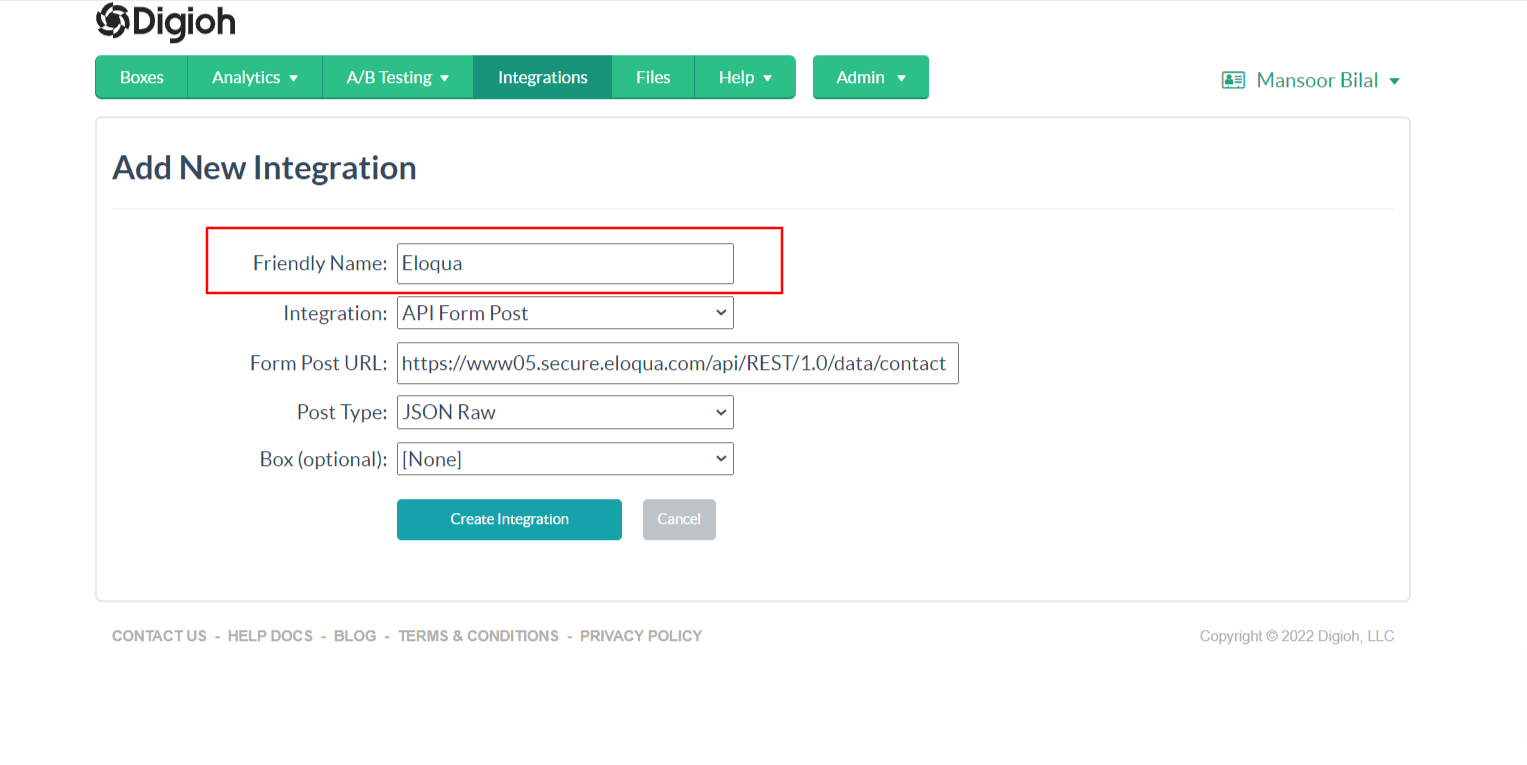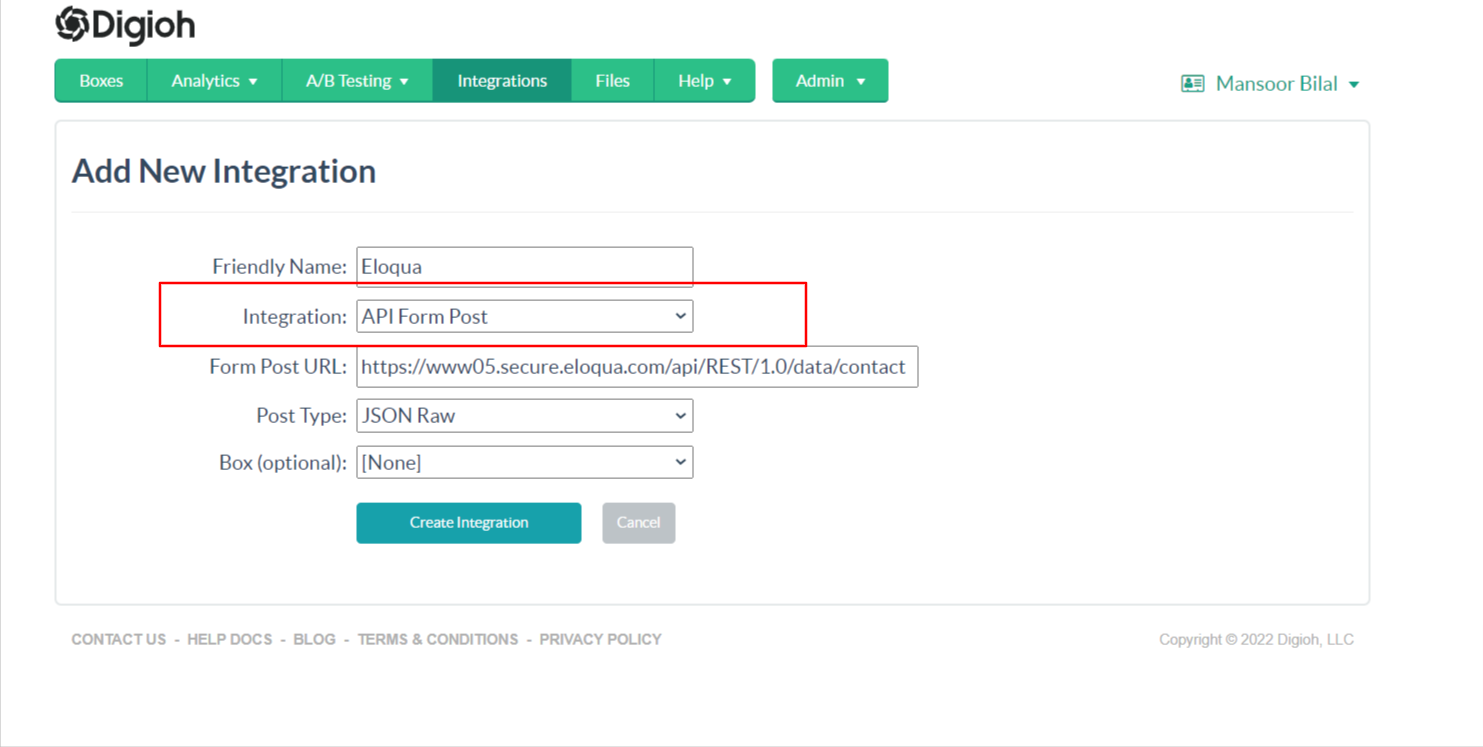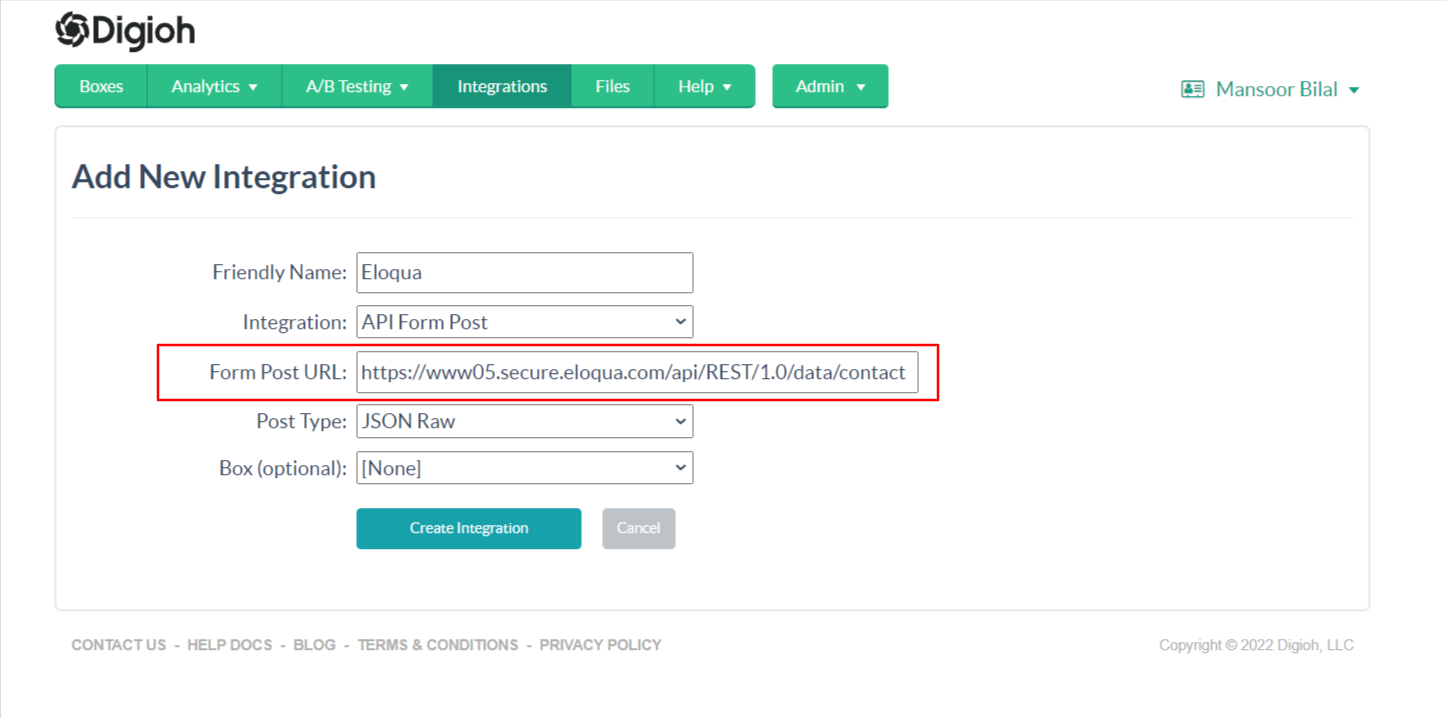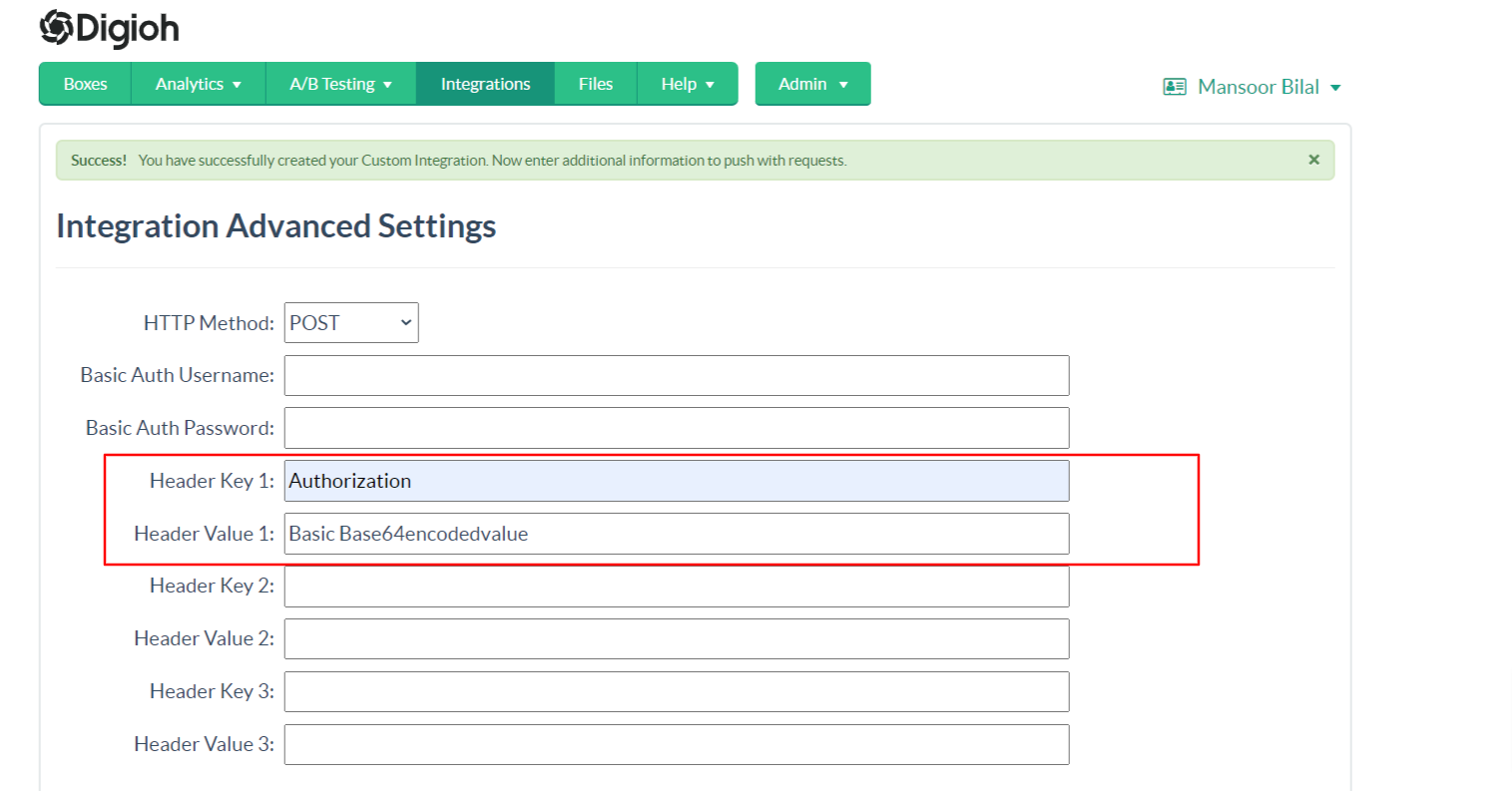Eloqua is a software-as-a-service (SaaS) platform for marketing automation offered by Oracle that aims to help B2B marketers and organizations manage marketing campaigns and sales lead generation.
Digioh’s Eloqua integration allows you to push a lead as a contact to Eloqua with pop-up forms, lightboxes, surveys, and quizzes. We will integrate Eloqua Rest API with Digioh to pass the leads as contacts.
Eloqua Integration Requirements
Before setting up your integration, you will need the following parameters from Eloqua :
- Base URL
-
Company Name
- Username
- Password
Fo Rest API basic authentication see this
Base URLs
Eloqua supports multiple data centers, each with a unique domain name. Eloqua refers to these as “pods”, there are currently seven in total – p01, p02, p03, p04, p06, p07, and p08. The https://login.eloqua.com/id endpoint allows you to programmatically discover a given Eloqua instance’s pod, associated domain name, and base URL, which is required for making API calls to the instance.
Note: We will get the Base URL through Eloqua Login API
Digioh
If you are setting up a Digioh integration by yourself, we first recommend reading about Digioh Integration Basics.
Follow these instructions to integrate with Eloqua.
1. Add a New Integration.
2. Set a name in the Friendly Name field.

3. Set API Form Post in Integrations Dropdown.

4. Enter Form Post URL
https://www05.secure.eloqua.com/api/REST/1.0/data/contact
Note: https://www05.secure.eloqua.com The Host url will be different for your Eloqua account

5. Select JSON Raw in Post Type Dropdown

6. Select Box

7. Click Create Integration.
After clicking Create Integration, you will see the advanced settings page.
8. Configure the Advanced Integration Settings.
– Set the HTTP method to POST
Steps to create base64 encoded Authorization Header value:
- Combine your Eloqua company name with username and password in this way =>
siteName + ‘\’ + username + ‘:’ + password
Where siteName is your company name and Username and password are your Eloqua account login details.
- Go to this website And enter the combined string it will generate the base64 encoded value that will be used in the authorization header.
– Header 1: Enter the Authorization in Header 1 Key, and enter the Base64 Encoded value like this.
Authorization: Basic Q09NUEFOWVhcdXNlcjE6cGFzc3dvcmQxMjM=

– Add the following JSON in
{
"address1": "[ADDRESS]",
"businessPhone": "[PHONE]",
"city": "[CITY]",
"country": "[COUNTRY]",
"emailAddress": "[EMAIL]",
"firstName": "[FIRST_NAME]",
"lastName": "[LAST_NAME]",
"postalCode": "[POSTAL_CODE]",
"title": "Actor",
"fieldValues": [
{
"id": "100017",
"value": "Mr."
},
{
"id": "100044",
"value": "source-integration"
}
]
}
NOTE: Update the payload according to your requirement.
That’s all, Your Eloqua integration is ready to go!
If you have any questions about setting up your Eloqua integration, send us an email, and we’ll be glad to help!
